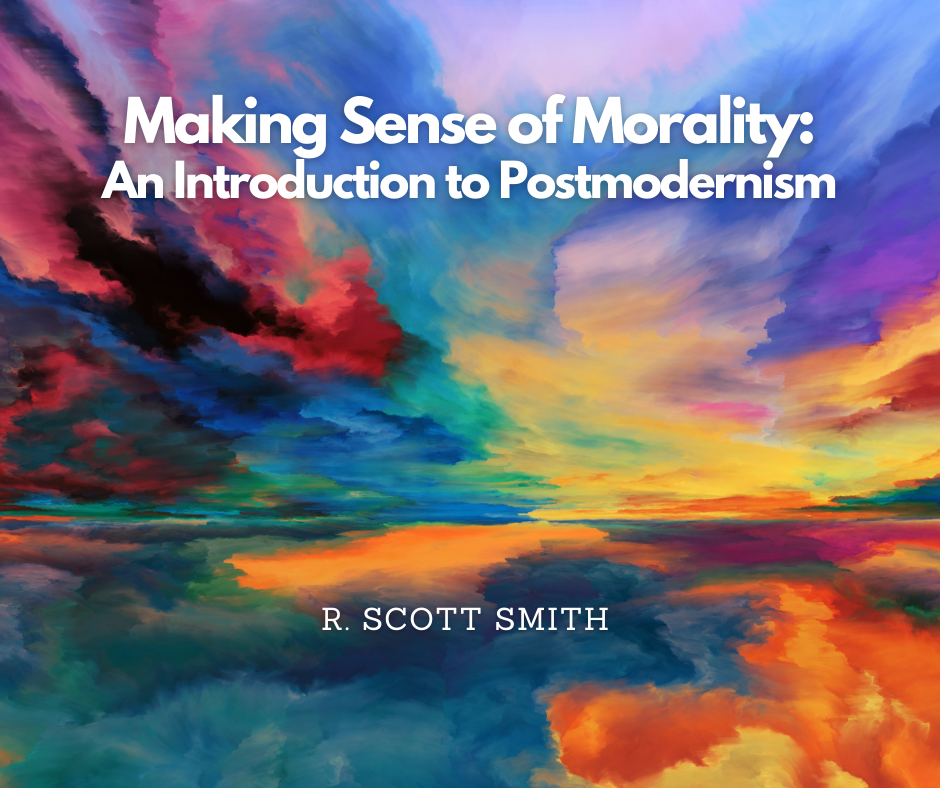Chapter Three: Louise Antony, “Atheism as Perfect Piety”
Louise Antony, professor of philosophy at the University of Massachusetts (Amherst), begins her essay with the admirably lucid statement that William Lane Craig is wrong to say that God’s existence is sufficient to ground morality and that there would be no morality without God. To explain why she thinks this is the case, she enters into a discussion of the reasons that compelled her to abandon her religious beliefs during college.
In addition to citing the problem of suffering as a reason that motivated her to give up theistic belief, she recounts how she developed (while in college) another argument that helped to separate (in her mind) morality from religion and God. Given this separation, the truths of morality are derived neither from theism nor from religious belief (p. 68). The argument turns on a distinction between two kinds of piety: imperfect contrition (which is contrition due to fear of punishment) and perfect contrition (which is contrition motivated by a desire for what is morally right). The argument, formally stated, runs as follows:
(1) Perfect contrition (even without belief in God) is more pleasing to God than imperfect contrition (even with belief in God).
(2) The only psychologically possible way for human beings to achieve perfect contrition is to cease believing in God.
(3) Human beings ought to do that which is most pleasing to God.
Therefore:
(4) Human beings ought to cease believing in God. (From 1-3)
The assumption behind premise (2) is that humans are contrite (at least in part) due to fear of punishment by God or for the desire for reward from God. However, this assumption is questionable. On what grounds does Antony claim that perfect contrition is psychologically impossible for a theist? It is not at all clear that theistic conviction makes perfect contrition psychologically impossible. However, we can set that problem aside for there is a much more serious issue facing this argument. Antony herself recognized that the argument contains a contradiction insofar as it implies both that God does not exist and that God will refrain from punishing someone for believing that God does not exist. Obviously, a non-existent God cannot do (or refrain from doing) anything. While Antony eventually abandoned this admittedly incoherent argument, she explains that it was this argument that first helped her to see the independence of morality and theism. Specifically, the argument caused her to ask this question: Why would God prefer perfect contrition to imperfect contrition? On one hand, if there were no reason, then God’s preference would be arbitrary. This result seems unacceptable. On the other hand, if there is a reason that God should prefer one to the other, then that reason is something independent of God – and, so, the moral rightness of preferring perfect contrition to imperfect contrition is a moral standard independent of God. Of course, the line of reasoning that Antony stumbled into here is similar to that found in Plato’s classic argument known as the Euthyphro Dilemma.
Antony explains that the relevant question posed by Socrates in his dilemma is this: Do the gods love pious actions because they are pious – or are actions pious simply as the result of being loved by the gods? She says that translating the question into modern terms yields the following question: Are some actions moral simply in virtue of God’s choice to favor them – or does God favor those actions because they are morally good independently of what God favors? Either answer to this question is supposed to constitute a problem for theists who want to say that ethics depends on God. According to the first option (which she calls Divine Command Theory), if God commands us to torture children, then it would be right and morally obligatory for us to do so. However, this cuts strongly against the moral intuitions of most people (p. 71). According to the second option (which she calls Divine Independence Theory), that which is morally right or wrong does not depend on God. In fact, she says that if Craig claims it is impossible or inconceivable for God to command something like torturing children, then even Craig should be considered a Divine Independence Theorist. She adds that only “the theorist who believes that right and wrong are independent of God’s commands could have any basis for thinking that she or he knows in advance what God would or would not command” (pp. 72-73). She then points out that if Divine Command Theory were correct, then it would reduce morality to a set of rules that is no less arbitrary than the rules of etiquette (pp. 72-73). She illustrates the arbitrary nature of morality on Divine Command Theory with an extended discussion of the Biblical account of Abraham being commanded by God to sacrifice Isaac – and she suggests that the attempts of theists to resolve the problem presented in this text actually suggest the truth of Divine Independence Theory (pp. 77-79). She then suggests that Divine Independence Theory appears to be at odds with saying that God (at least as described in the Old Testament) is a moral agent.
Now all of this is very interesting, but it turns out that she has missed Craig’s fundamental point – namely, that God’s nature is the Good itself. Further, according to Craig, given that God and the Good are identical, God cannot simply give any arbitrary command (but can only issue commands consistent with the divine nature). Craig explicitly states in the debate that, “on the theistic view, objective moral values are rooted in God” (p. 30). Craig adds, “He is the locus and source of moral value. … He is by nature loving, generous, just, faithful, kind, and so forth” (p. 30). On this approach, Craig is free to say that God cannot command anything in an arbitrary fashion (despite Antony’s insistence otherwise). Moreover, on Craig’s approach, he can still maintain that morality is dependent on God insofar as the paradigm of moral goodness is located in God’s nature (so that, had there been no God, there would be no moral truths). If Craig’s view is right, then morality is nothing like arbitrary rules of etiquette. Further, on this approach, there is no reason for Antony to maintain that we could not predict what God would command (at least in some cases) – especially if God makes some of those commands known to us by way of conscience or various other mechanisms. This is a much more plausible reading of Craig’s position than what Antony provides. Beyond this failure to engage Craig’s position, there are three particular claims made by Antony towards the end of her essay that need to be addressed.
First, Antony claims that a glaring problem with Craig’s view is that “he offers no argument for the particular claims that there is no morality without God. What he does instead is cite authorities” (p. 81). Somehow, she crucially misses the point that the ideas supporting Craig’s claim are found in the cited materials – even if they are not spelled out as formal arguments. So, one may ask why Craig thinks that naturalistic forms of atheism entail that there is no morality. Craig specifically answers this question. He says, “After all, on the atheistic view, there’s nothing special about human beings. They’re just accidental by-products of nature that have evolved relatively recently on an infinitesimal speck of dust called the planet Earth” (p. 31). Craig adds, “On an atheistic view, moral values are just by-products of sociobiological evolution” and that such values might be “advantageous in the struggle for survival,” but that “on the atheistic view” there is nothing that would lead one to think that such values are “objectively true” (pp. 31-32). To state Craig’s argument with greater precision, we get the following:
(5) If atheistic naturalism is true, then human values are only subjective judgments brought about as by-products of our sociobiological evolution.
(6) If human values are only subjective judgements brought about as the by-products of our sociobiological evolution, then there is no objective morality.
Therefore:
(7) If atheistic naturalism is true, then there is no objective morality. (From 5 & 6 by Hypothetical Syllogism)
Now, this argument might be unconvincing to Antony. This argument might even be entirely dubious. However, whether or not it is a good or bad argument, it is mystifying why Antony would say that Craig offers no supporting reasons for his claim that there is no morality without God – and this was not the only supporting reason he offered for his position. The fact that Craig drew the content of these premises from the citation of other authors is manifestly irrelevant.
Second, toward the end of the essay, Antony says that Craig does not “acknowledge, much less endeavor to answer, the main objection to his own position, the objection found in the Euthyphro” (p. 81). Given that Craig has formulated a position that avoids the typical problems associated with the Euthyphro Dilemma, it seems odd that Antony would make this claim. It appears as if she is committing the straw man fallacy against Craig’s position. In other words, Antony is criticizing a view similar to Craig’s but which is not, in fact, Craig’s position. To see why this is the case, we need to review Antony’s presentation of the Euthyphro Dilemma. Specifically, we need to focus on that horn of the dilemma that says that morality being dependent on God would make it arbitrary. Antony suggests that if Divine Command Theory is true, then God could command heinous acts (like torturing animals and killing children for pleasure) and then those acts would be morally required – or God could just as easily command the opposite (so that heinous acts would be morally prohibited). However, she thinks that such actions are so obviously wrong that not even God commanding those actions could make them morally right or obligatory. In other words, she appears to hold that the truth of Divine Command Theory would make the truths of morality contingent rather than necessarily true. She thinks that this result counts as evidence against the truth of Divine Command Theory. However, there are some significant problems with this line of thought.
To begin, there is not just one version of Divine Command Theory. There are versions of Divine Command Theory that are vulnerable to this line of thought – namely, those versions of Divine Command Theory that explicitly stipulate that if God were to command heinous acts, then we would be morally obligated to do those actions. We can refer to that sort of Divine Command Theory as Radically Voluntarist Divine Command Theory. So, applying Antony’s objection, we get the following argument:
(8) If Radically Voluntarist Divine Command Theory is true, then heinous actions could be morally obligatory.
(9) Morally heinous actions could never be morally obligatory.
Therefore:
(10) Radically Voluntarist Divine Command Theory is not true. (From 8 & 9 by Modus Tollens)
In this argument, the conclusion follows from the premises, but are its premises true? Some defenders of Radically Voluntarist Divine Command Theory think that this argument can be overcome. In particular, one may consult Paul Rooney’s book, Divine Command Morality (Avebury, 1996; especially Chapter 6). However, as we have already mentioned, this is not the only version of Divine Command Theory, and in fact it is quite rare. Since it is Craig’s view of Divine Command Theory that is being discussed here, the only relevant question is whether Craig endorses Radically Voluntarist Divine Command Theory. The answer to that is “no.” One could hardly fault Craig if he were to look at the conclusions expressed in (10) and ask, “What does that have to do with me?” Further, Craig could point out that the divine nature is loving and merciful and add that the divine nature just is the standard of the Good from which God issues divine commands. In short, Antony seems to be misrepresenting Craig’s view. Louise Antony needs to demonstrate that Craig’s version of Divine Command Theory is (despite appearances) radically voluntarist. It clearly is not; in answer to the Euthyphro Dilemma, Craig splits the horns and distinguishes between the good and the right, embracing a divine nature theory of goodness and a Divine Command Theory of the right. Until Antony can show why Craig’s view is vulnerable to her arbitrariness objection, Craig would be justified in dismissing this criticism as an irrelevant misrepresentation (because it is aimed at a different version of Divine Command Theory).
However, Antony could try to change the argument above to include Craig’s position. She might be thinking that all versions of Divine Command Theory entail the moral permissibility of heinous acts. If so, then her argument amounts to the claim that any version of Divine Command Theory somehow dissolves or cancels out the necessary status of moral truths. If this is her argument, then she is committing a different fallacy – namely, the fallacy of begging the question (that is, assuming what needs to be proved). David Baggett and Jerry Walls explain the problem Antony faces in their book, Good God: The Theistic Foundations of Morality (Oxford, 2011):
What seems to be going on in the argument is that Antony and Sinnott-Armstrong are attempting to drive a subtle wedge between God and necessary [moral] truth. … One suspects, then, that she’s implicitly assuming without argument that the necessary truth of morality, if such there be, is independent of God. But this is question begging and, though not an uncommon assumption, is open to dispute. (p. 211; Appendix A)
In other words, Antony needs to provide some sort of compelling reason to dispute the idea that the necessity of moral truth resides in (or depends on, or is identical to) the divine nature. Until she (or someone else) does so, Craig is justified in dismissing her assumption against his view as ineffectual. In concert with such contemporary thinkers as Thomas Morris, Chris Menzel, Robert Adams, and many others (not to mention several luminaries from the history of philosophy), Craig affirms that necessary moral truths can plausibly be thought to depend essentially on God.
Third, at the end of the essay, Antony begins to engage in character assassination (or the ad hominem fallacy). She writes, “I have the dark suspicion that Dr. Craig is not really interested in engaging with atheists in rational discussion, but rather is speaking exclusively to his theistic contingency, with the aim of reinforcing for them the vile stereotype of atheists so prevalent in American society” (p. 81). So, rather than engaging Craig on the substance of his arguments, Antony (without the slightest evidence) chooses to waste time by raising dubious and unfounded questions about Craig’s alleged motives. Further, she says nothing that would reconcile her dark suspicions that Craig wants to reinforce vile stereotypes about atheists with Craig’s clear and explicit assertion, “Let me just say at the outset, as clearly as I can, that I agree that a person can be moral without having belief in God” (p. 29). Craig states this as the very first sentence of his opening statement in the debate. This fact does not boost one’s confidence that Antony read carefully (or even understood) the case that Craig makes. So, how does Craig’s claim (that atheists can be moral without believing in God) reinforce stereotypes about the immorality of atheists? Antony does not say. If Craig is trying to reinforce vile stereotypes about how evil atheists are, then he is rather bad at it. Antony’s choice to end her essay by focusing on Craig’s alleged motives (rather than his arguments) is more than a little disappointing, and likely predicated on her uncharitable failure to distinguish between what Craig said of atheists themselves (on one hand) and of the position of atheism itself (on the other hand).




















































